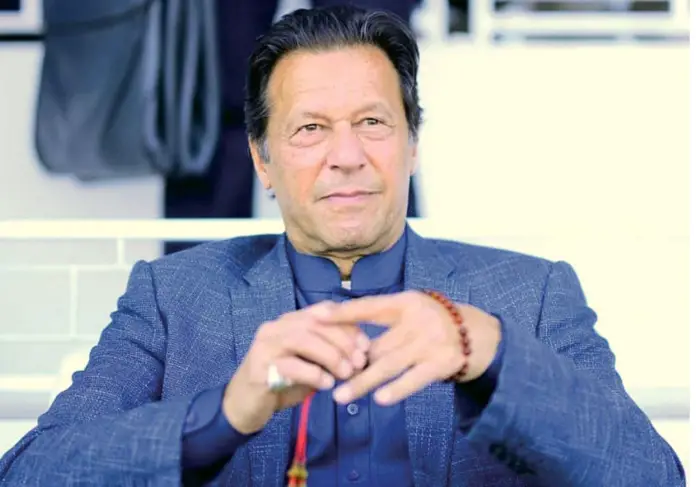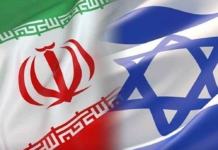My morning begins with a quick skim read of headlines and selected opinion/editorial pieces. I read with interest a piece on Riyasat-i-Madina without realising who the author was.
For someone who has lived with the contributor of the said piece, it is quite surprising to hear that he can actually write anything. But I’m willing to allow the benefit of the doubt that in the last few years he might have developed certain new abilities. Nevertheless, our personality traits dictate what we are capable of and not the rhetoric that we regurgitate. We can only judge performed by the runs on the scoreboard and not by a modelling campaign pre-match.
Based on that I set out to examine the valuable suggestions made in the article.
The concept of Riyasat-i-Madina was described in much detail and the emphasis was on the moral direction of a community and nation. As an avid reader of historical accounts of leaders, military strategists and statespersons as well as treaties and constitutions from around the world through the course of history, I have a slightly different interpretation of Riyasat-i-Madina.
In my eyes and to my limited knowledge the concept was rooted in reality and not in some flimsy idealism.
Many scholars have written about this with further clarity.
In the words of Dr Ali Muhammad Junaid in his thesis titled ‘Riyasat-l-Madina Dor e Risalaat Aur Ehed Hay Khulfa e Rashideen Main: Ilmi o Tehqeeqi Mutalia (01 ta 40), the “Islamic state is not a utopia or myth but in reality, it not only used to exist but also used to function.” However, I do agree with the writer that the morality of a leader and the community they lead is indicative of their collective output and progress.
For most of us who are deeply devoted to the final Prophet Hazrat Muhammad (SAW), his impeccable personality is the ultimate role model to follow. The first thing that comes to mind is his undoubted honesty. The term Sadiq and Ameen, used in Pakistan, dare I say, so flippantly for lesser mortals is disturbing to me personally.
However, the fact that a sitting prime minister incessantly talks about Riyasat-i-Madina must I feel start with some introspection. Has the writer given us any evidence of the courage, to be honest? I and many of his family and friends can give personal accounts to the contrary but let’s focus on the commonly available evidence under his tenure.
The most obvious question: Is the captain telling us the truth about the state of the economy? Did he display any courage to accept that he was personally heading the Economic Coordination Committee (ECC) when the sugar and wheat crisis hit the people?
In his concluding remarks of the article is his oft-repeated reference to the mafias in the country. Was he clueless and continues to be actually unaware of who the mafias are?
Is Pakistan really the least expensive place to live in at the moment as he claims in his speeches?
Is the leader not aware that under the principle of the Islamic state sovereignty only lies with Allah? While he might get away with his charm and charisma that only his diehard followers are addicted to, is he not answerable to the ultimate sovereign? In Riyasat-i-Madina religion and politics are not seen as separate. Indeed, all acts must be in line with shariah.
As I read the article sentence after sentence, many questions arise in my mind. Even the diehard followers of the writer accept that the rate of inflation and the price of petroleum products is unbearable. They believe their leader will ultimately turn things around because after all, what can they do but live in hope?
However, Riyasat-i-Madina was built and is remembered for the alleviation of the status of the most oppressed, most marginalised in society. Hazrat Umar, the second caliph wrote to the governor of Basra, Abu Musa: “The best of men in authority is he under whom people prosper and the worst of them is under whom people encounter hardships.” It focused on upward mobility by visibly promoting equity. The rich were not allowed to flaunt their power and wealth.
Hazrat Umar, the Caliph, once arrived to lead the Friday prayers. When he proceeded to deliver his address, a young man from the congregation stood up to say, “We will not listen to you, until you give us the explanation that you owe to us.”
Hazrat Umar paused for a moment, and then turning to the young man said, “Explanation for what?”
The young man said, “The other day each one of us obtained a piece of cloth from the Baitul Mal. Today, I find two pieces of cloth on the person of the caliph. I want to know what right had the caliph to get a share twice the share of an ordinary Muslim?”
Before Hazrat Umar could explain Abdullah, the son of the caliph, stood up and said, “Friends, the truth of the matter is that like every other person my father and myself obtained a piece of cloth each from the Baitul Mal. My father is so tall that the piece of cloth that he got from the Baitul Mal did not suffice him. So, I gave him my piece of the cloth.”
This explanation satisfied everyone. The young man who had interrupted the caliph said, “We are satisfied. You can now proceed with your address. We will listen to you and, obey your commands.”
In Riyast-i-Madina the rich were expected to give away part of their wealth to promote equality. The concept of zakat was simple yet strictly applied. In Pakistan, only the general public is taxed and the mini-budget is a huge example of complete deviation from the Islamic principles of welfare and justice. Is taxing baby formula milk while the PM sits in over manicured lawns on several acres of the land, fair? Does sending a helicopter to his stranded sister in Gilgit Baltistan while no urgent rescue effort was made to save lives in Murree shout out Islamic justice?
Humility was advocated by the actions of the leader in Riyasat-i-Madina. Here, the writer PM proclaims that he is not an “Aaam Admi” (ordinary person). The megalomania of the celebrity cricketer is well known to us who have had a close encounter with him.
Hadith 366, Chapter 1, Sahih Muslim stated that “Any ruler who is responsible for the affairs of Muslims but does not strive sincerely for their well-being will not enter paradise with them.”
Disclaimer: Opinions expressed within the content are solely the author’s and do not reflect the opinions and beliefs of Minute Mirror.






